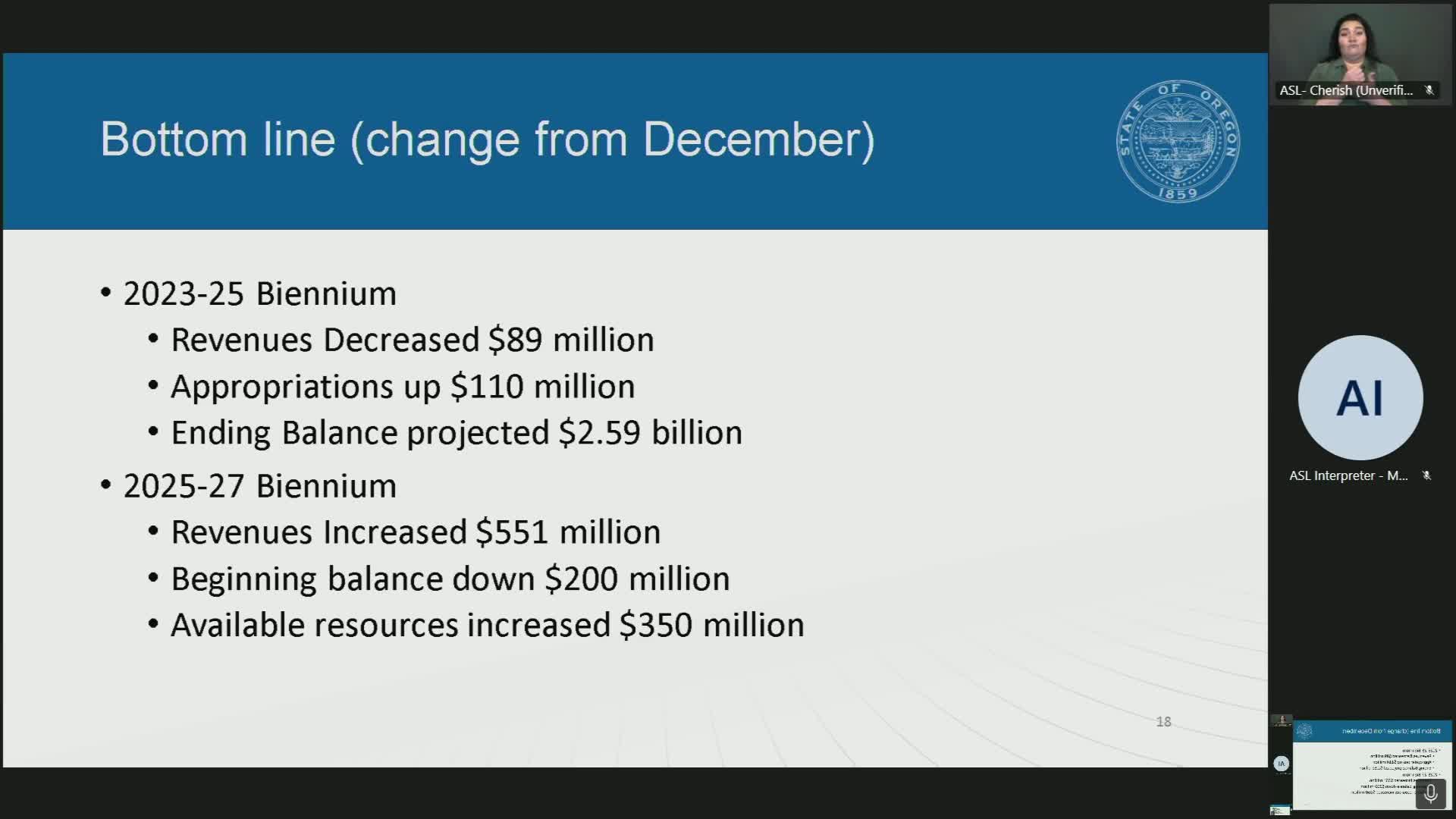Tax Refunds Surge $275M Due to Accounting Timing Issues
February 26, 2025 | Finance and Revenue, Senate, Committees, Legislative, Oregon
This article was created by AI summarizing key points discussed. AI makes mistakes, so for full details and context, please refer to the video of the full meeting. Please report any errors so we can fix them. Report an error »

In a recent meeting of the Oregon State Legislature's Senate Committee on Finance and Revenue, officials delved into the intricacies of personal and corporate income tax forecasts, revealing significant insights into the state's financial landscape. The discussion, held on February 26, 2025, highlighted two primary issues affecting personal income taxes, particularly focusing on unexpected refund patterns and the implications for future forecasts.
As the meeting unfolded, committee members examined a slide detailing the fourth quarter tax performance, which ended on December 31. A striking revelation emerged: personal income tax refunds exceeded projections by a staggering $275 million. This discrepancy was attributed to an accounting and timing issue rather than a fundamental shift in taxpayer behavior. Historical patterns used to forecast monthly payment and refund rates were disrupted due to an unusually large "kicker" and the introduction of a new pass-through entity elective tax. These factors complicated tax returns, leading to a surge in refunds during November and December, which were not anticipated based on past trends.
Despite the unexpected refunds, officials reassured the committee that this was largely "old news" related to the 2023 tax year and would not significantly impact future forecasts. The corporate income tax also fell short of expectations, primarily due to reconciliations from prior tax years rather than current economic activity.
The conversation then shifted to the forecast for personal income taxes moving forward. With new tax return data for 2023 and preliminary information for 2024 now available, officials noted the importance of understanding the underlying income that drives tax revenue. While the state has seen a healthy influx of funds, the reasons behind this growth remain somewhat unclear, as the data reveals the amount collected but not the specific income sources contributing to it.
As the meeting concluded, the committee was left with a clearer picture of the state's tax landscape, acknowledging both the challenges and the positive trends in revenue collection. The discussions underscored the complexities of tax forecasting and the need for ongoing analysis as Oregon navigates its financial future.
As the meeting unfolded, committee members examined a slide detailing the fourth quarter tax performance, which ended on December 31. A striking revelation emerged: personal income tax refunds exceeded projections by a staggering $275 million. This discrepancy was attributed to an accounting and timing issue rather than a fundamental shift in taxpayer behavior. Historical patterns used to forecast monthly payment and refund rates were disrupted due to an unusually large "kicker" and the introduction of a new pass-through entity elective tax. These factors complicated tax returns, leading to a surge in refunds during November and December, which were not anticipated based on past trends.
Despite the unexpected refunds, officials reassured the committee that this was largely "old news" related to the 2023 tax year and would not significantly impact future forecasts. The corporate income tax also fell short of expectations, primarily due to reconciliations from prior tax years rather than current economic activity.
The conversation then shifted to the forecast for personal income taxes moving forward. With new tax return data for 2023 and preliminary information for 2024 now available, officials noted the importance of understanding the underlying income that drives tax revenue. While the state has seen a healthy influx of funds, the reasons behind this growth remain somewhat unclear, as the data reveals the amount collected but not the specific income sources contributing to it.
As the meeting concluded, the committee was left with a clearer picture of the state's tax landscape, acknowledging both the challenges and the positive trends in revenue collection. The discussions underscored the complexities of tax forecasting and the need for ongoing analysis as Oregon navigates its financial future.
View full meeting
This article is based on a recent meeting—watch the full video and explore the complete transcript for deeper insights into the discussion.
View full meeting
